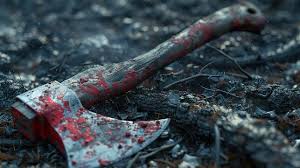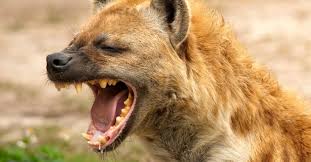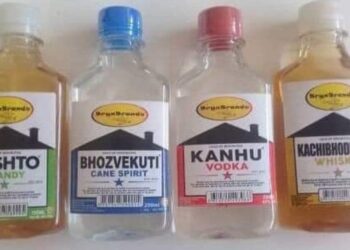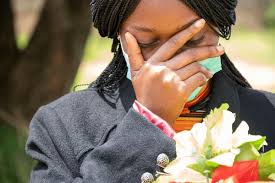The group stormed a jail in the capital, Conakry, early on Saturday morning – taking Capt Camara and three others.
Those taken are currently on trial for their alleged roles in deaths of more than 150 people in a 2009 protest.Besides Capt Camara, two other prisoners have also been found.
It is unclear if they were kidnapped or freed by their supporters.
Capt Camara’s lawyer earlier told the BBC the former leader was taken against his will and that he would never try to escape prison, as he had confidence in the Guinean judicial system.
The country’s borders were closed as the authorities hunted for him and the others that were taken.
Guinea’s Justice Minister, Charles Alphonse Wright, announced the escape on local radio.
“We will find them. And those responsible will be held accountable,” he said.
Gunshots were heard in Conakry, starting before dawn. The city centre was cordoned off and military vehicles were also seen on the streets.
Among the others reported to have escaped were Col Claude Pivi, a former government minister who is accused of also being involved in the murder of people at Conakry stadium on 28 September 2009.
At least 157 people died when troops attacked people protesting against military rule. Scores of women were raped.
Col Pivi, Capt Camara and nine other former officials who have been charged over the massacre have all denied the allegations against them.
Capt Camara is charged with having command responsibility over the soldiers who carried out the alleged crimes.
He seized power in 2008 when long-time President Lansana Conté died, but he was ousted and fled the country not long after the Conakry killings and following an assassination attempt.
The 59-year-old had been living in Burkina Faso before returning to Guinea in September 2022 to face justice.
Guinea is currently under military rule, one of several former French colonies in West and Central Africa that have staged coups in the past three years.
The most recent happened in 2021, when former French soldier Col Mamady Doumbouya led a rebellion against President Alpha Condé. Col Doumbouya was later sworn in as president.
Source Nehandaradio










